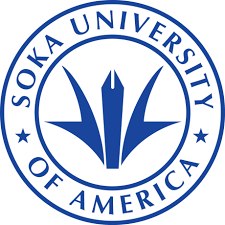Visible Evidence, the international conference on documentary film and media, will convene for its 24th year in the city of Buenos Aires, Argentina, August 2-6, 2017. VE2017 is hosted in collaboration with the Argentine Association of Cinema and Audiovisual Studies (AsAECA), the Audiovisual Research and Experimentation Laboratory (Master in Documentary Journalism -LAIE-, National University of Tres de Febrero -UNTREF-) and Revista Cine Documental . The conference will take place at the Centro Cultural Borges (Borges Cultural Center) above the traditional Galerías Pacífico, at the Margarita Xirgu-UNTREF theater in the historical neighborhood of San Telmo, at Alianza Francesa (central site) and at the Haroldo Conti’s Cultural Memory Centre.
Visible Evidence Buenos Aires (2017) coincides with the 100th anniversary of the Russian Revolution and marks fifty years since Che Guevara’s assassination in Bolivia. These two transcendental events compel us to contemplate anew the relationship between documentary film and revolutionary movements. In the 1960s, Argentina and other Latin American nations were at the center of a transnational debate about the role of film as a tool for social change in a regional movement called “New Latin American Cinema”. In the next decade, many influential filmmakers lost their lives and many others were forced into exile. From abroad, or clandestinely in their own countries, filmmakers thought deeply about the ethical, moral, aesthetical and political dimensions of their practices, in particular about how to represent individuals as political agents. An important aspect of their work was to foster political alliances with their colleagues, producers and film distributors in other developing countries. In spite of the brutal political persecution, their activist approach to filmmaking had an enormous influence on younger generations, particularly after the economic crisis at the turn of the twenty first century and the popular insurrections that disrupted the neoliberal takeover of the economy, society, and culture in many Latin American countries. The Latin American documentary film tradition followed these popular revolts closely, gradually incorporating many of the organizing structures of progressive social movements. Thus, while notions of Third Cinema or Political Cinema may seem less prominent in recent years, it is productive to think about the elements of the traditions that live on in contemporary Latin American film. At the beginning of the new millennium, one sees a fruitful and combative debate about the efficacy of documentation, understood within the historiography of human rights abuses, indigenous rights, and genocide. There has also been an increase in interest in documentary film in the last two decades in Argentina. Progressive governments throughout the continent have increased funding for non-fiction films, strengthening ongoing discussions in academic circles about the role of the state as a patron of the arts. We believe that the time is ripe to rethink the relations between documentary film and national cinemas, at a time in which state-funded progressive films are not always in agreement with transnational trends in contemporary cinema.
Visible Evidence 2017 encourages participants to engage with the following themes:
- Documenting social movements
- Revolutionary filmographies
- Documenting Latin America, documenting “the South”
- Hypertextuality
- First person documentary film
- Frictions between performativity, fiction and documentary
- Media and technology
- Documentary between national/regional tradition and transnational trends
- Scopes and limits of contemporary documentary theory to fully understand current Latin America documentary trends
- Transmedia and Interactive Documentary. New Problems
- Documenting human rights abuses
Contact: ve2017@cinedocumental.com.ar
Organizing Committee:
Javier Campo
Tomás Crowder-Taraborrelli
Clara Garavelli
Pablo Piedras
Kristi Wilson
Scientific Committee:
†Ana Amado
Josetxo Cerdán
Michael Chanan
Andrés Di Tella
Clara Kriger
Amir Labaki
Ana Laura Lusnich
Mariano Mestman
María Luisa Ortega
Manuela Penafria
Fernao Ramos
Michael Renov
Brian Winston
Production Coordinator:
Violeta Uman
Production Assistant:
Cecilia Pisano
Hosted by:
Partners:





















